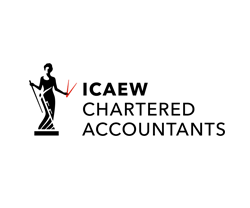Tax Avoidance – Everyone’s At It!
We’ll let you in on a little secret: we’re all tax avoiders. Tax avoidance is “the arrangement of one’s affairs in such a manner that only the legally due tax is paid”. The most common relief that facilitates tax avoidance is the annual tax free personal allowance, and pretty much everybody in the country takes advantage of this.
There are plenty of other tax avoidance measures that we don’t normally associate with being tax avoidance, such as the exemption from capital gains tax (CGT) when we sell our homes and making investments such as ISAs, premium bonds and pensions.
On the road of tax avoidance, our (hopefully taxed) car is very much in first gear with these strategies. We can, however, move through the gears. Second gear leads us to “flipping” our main residence between our homes and a second property to avoid CGT; a popular – and perfectly legal – strategy amongst our esteemed political class. Remember Hazel Blears wafting a cheque for CGT that was never due in front of the noses of a bloodthirsty press pack in 2009? That cheque is now more famous than she is.
Third gear and we’re stepping it up a notch now. Investments into venture capital trusts and enterprise investment schemes offer attractive relief from tax. These are genuinely useful to society, though, as start up businesses can tap into a rich source of much needed capital via these schemes.
The fourth and last gear (our car isn’t very good, we’ll admit) gets us motoring into the realm of tax avoidance schemes, usually only available to the very wealthy. You know the kind of schemes we’re talking about here: off-shore employee benefit trusts (Jimmy Carr), generation of artificial losses by investing in the music industry (Gary Barlow) and becoming a used car salesman (Chris Moyles). Incidentally, we’ve seen a schematic of the structure of the scheme used by Chris Moyles and it doesn’t look to dissimilar to this Jackson Pollock painting.

In our experience, it’s fourth gear tax avoidance that hits the headlines, largely because it is the rich – who can arguably afford to pay their taxes – who are taking advantage of such schemes. John Maynard Keynes once said that the avoidance of taxes is the only intellectual pursuit that still carries any reward. Maybe that’s why Chris Moyles gave up his Radio One breakfast slot to sell £1,000 worth of used cars.
The legal battle to close such schemes is often a long and arduous road for HMRC to go down. They’re often hamstrung by poorly written law and the sheer complexity of the schemes. However, new proposals will now mean that the tax avoided will have to be paid upfront by anyone using these schemes and subsequently repaid only if the scheme passes scrutiny in the courts. Early thoughts are that this will make tax avoidance schemes less attractive – but we’ll see.
Jonathan Ford & Co advise a wide range of owner managed businesses on how to legitimately manage their tax affairs. For a free consulatation call 0151 426 4512 or email info@jonathanford.co.uk





